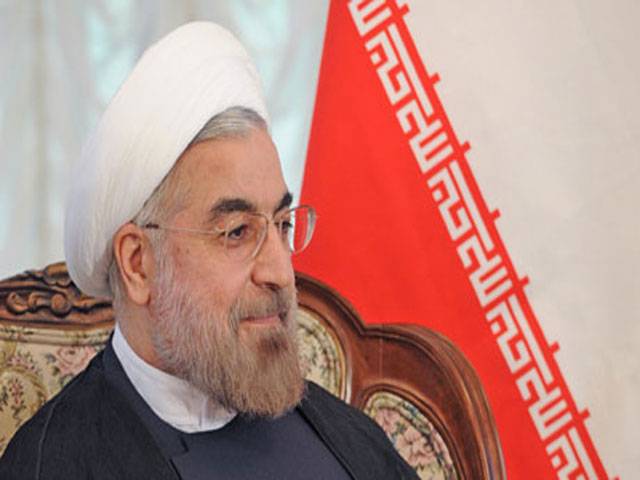WASHINGTON - Iranian President Hassan Rouhani said on Wednesday that his government won’t build any nuclear weapons, as speculation grew here that President Barack Obama may hold direct talks with the new Iranian leader on the margins of the UN General Assembly in New York.
In an interview in Tehran with NBC News, a leading American television network, Rouhani, who has struck a moderate tone, reiterated Iran’s stance that “under no circumstances would we seek any weapons of mass destruction, including nuclear weapons, nor will we ever.”
“We have never pursued or sought a nuclear bomb, and we are not going to do so,” he said. “We solely are looking for peaceful nuclear technology.”
“In its nuclear program, this government enters with full power and has complete authority,” Rouhani said.“The problem won’t be from our side. We have sufficient political latitude to solve this problem.”
Both and Obama will address the General Assembly in New York on September 24th.
White House officials said Obama currently has no planned meeting with President Rouhani. But the two sides have communicated ahead of what diplomats could be the first face-to-face interaction between an American President and a Iranian President.
Relations are so poor, officials said, that even a handshake would mark a significant turning point.
No American President has met a top Iranian leader since Islamic radicals overthrew the pro-American Shah Muhammad Reza Pahlavi in 1979.
In the interview, Rouhani also said the tone of a letter he received recently from President Obama expressing a willingness to resolve the issue was “positive and constructive.”
“It could be subtle and tiny steps for a very important future,” he said.
“I believe the leaders in all countries could think in their national interest and they should not be under the influence of pressure groups. I hope to witness such an atmosphere in the future.”
Rouhani also spoke on the crisis in Syria, an ally of Iran.
“We are not the government of Syria,” he said. “We are one of the countries of this region which is asking for peace and stability and the elimination of all weapons of mass destruction in the entire region.”
Asked if he thought Obama appeared weak by not pushing ahead with a military strike against Syria over the Assad regime’s alleged use of chemical weapons, Rouhani replied: “We consider war a weakness. Any government or administration that decides to wage a war, we consider a weakness. And any government that decides on peace, we look on it with respect to peace.”
Rouhani said his top priority is to ease punitive sanctions in place against Iran over its nuclear programme, while the West wants to continue them.
A meeting between US and Iranian officials runs the risk of undermining painstaking international efforts to pressure Iran.
A senior US administration official said that even if no direct exchange occurs between Obama and Rouhani, the tenor of relations between the US and Iran seems to be improving.
“The tone of confrontation has significantly diminished,” the senior administration official said. “We’re in the early stages here of testing whether or not this is real.”
US officials said Iran’s new Foreign Minister, Muhammad Javad Zarif, has also communicated to Washington his desire to meet with senior US officials.
Zarif has engaged in more direct dealings with the US than any senior Iranian official.
Washington and Tehran have intensified their communications since Rouhani was elected by a landslide victory to succeed Iran’s hard-line President Mahmoud Ahmadinejad in June.
On Thursday, Zarif also met UN Secretary-General Ban Ki-moon, who said that he had very good talks with the Iranian official.
Friday, April 26, 2024
Iran will not build nuclear weapons, says Rouhani

12:32 PM | April 26, 2024
11:26 AM | April 26, 2024
China wants ‘just, lasting’ solution to Palestine issue
1:21 PM | April 26, 2024
Three-day global science-policy forum: Socially inclusive solar irrigation systems
11:02 AM | April 26, 2024
DG kicks off tree plantation drive in ICT
April 26, 2024
11 outlaws arrested in district raids
April 26, 2024
Economic Challenges
April 26, 2024
No Compromise
April 26, 2024
Strength and Solidarity
April 26, 2024
Musk vs Australia
April 25, 2024
Reforming Rehab
April 25, 2024
Photon power
April 26, 2024
Justice prevails
April 26, 2024
Ending animal suffering
April 25, 2024
AI governance
April 25, 2024
AI concerns
April 25, 2024
ePaper - Nawaiwaqt
Advertisement
Nawaiwaqt Group | Copyright © 2024





